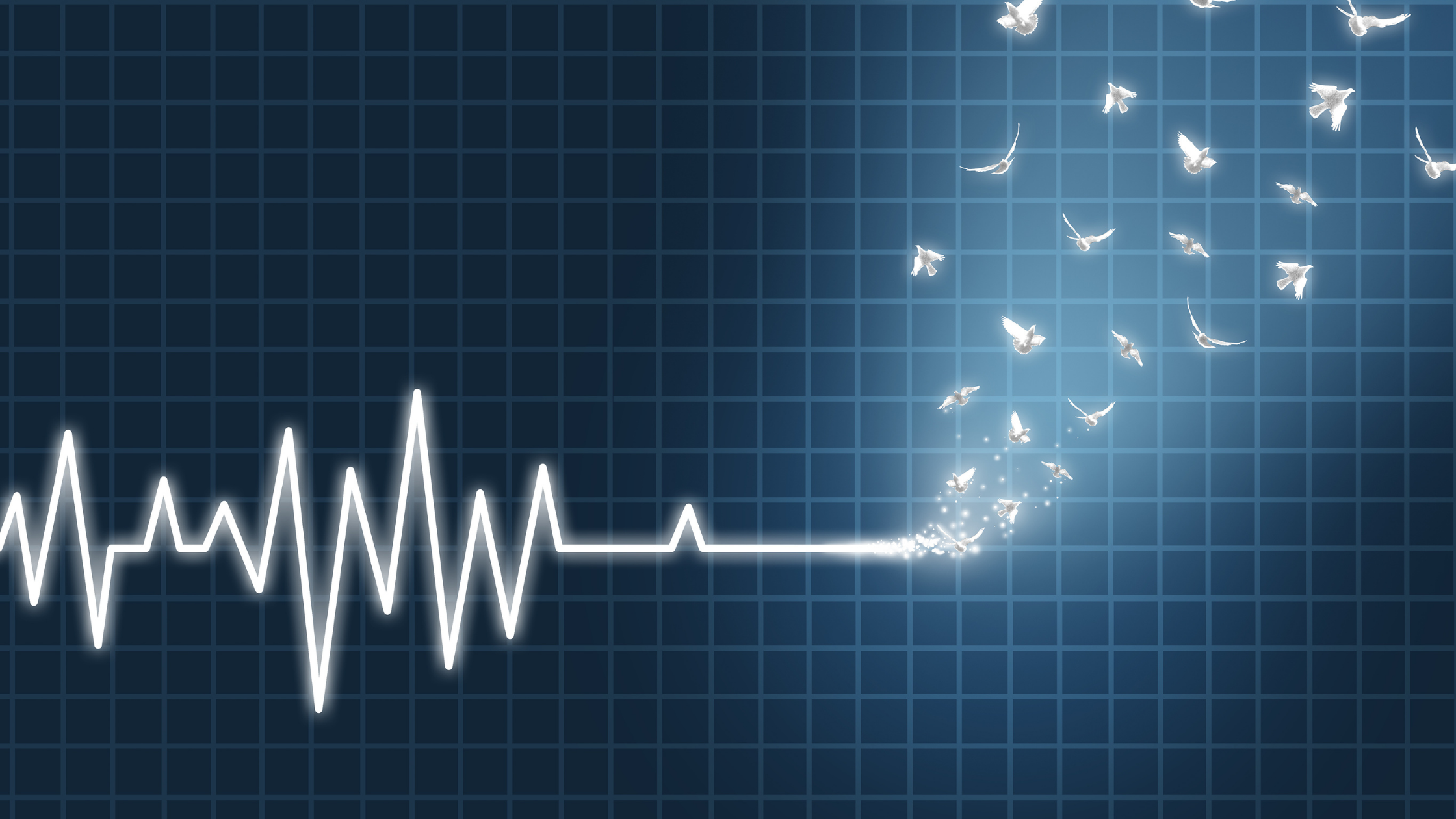I could not help binge-watching Amazon’s show ‘Upload.’ I worked as a Hospice nurse for 6 years before moving into Informatics. For me the show raises all sorts of questions about end-of-life.
This is the first post in a new series, Science Fact or Fiction, where I will dive into what sound like wacky science-fiction ideas. I want to see how close they are to being real and how they may change healthcare.
In case you have not seen it (no spoiler here, this is in the IMDB description): the show follows a man who dies. At the moment of death he has his consciousness uploaded to a digital afterlife. He is still able to talk and interact with living people as he navigates his new digital afterlife.
The idea of ‘uploading consciousness’ exists in other shows as well. ‘Altered Carbon’ shows people uploading their consciousness to a new body when the old one dies.
However, ‘Upload’ specifically plays with the idea of a digital afterlife. It raises questions about estate planning, ownership of data (especially your digital soul), and what happens to people who cannot afford uploading services.
I can see how uploading consciousness would appeal to those seeking a confirmed afterlife. But is ‘uploading consciousness’ even a real thing?
Is ‘uploading consciousness’ an actual possibility?

According to a TED-Ed talk I watched (linked below), it is a real idea. But the technical challenges to get there are vast.
First, there is the challenge of adequately scanning and making a digital copy of the whole brain. In case you did not know, the brain is pretty complex.
There is much that is unknown about the brain and how it works. This includes neural signaling – the way in which nerve cells communicate between each other.
There are trillions of precise one-to-one connection between neurons. All of this would need to be mapped to copy a person’s mind.
Second, scanning technology does not yet have enough resolution to determine details of individual nerve synapses – the space between two nerve cells.
New scanning technology is needed. The technology that exists now would likely cook the brain if it were powerful enough to get to right level of detail.
Third, we would have to recreate the brain. This is actually the part closest to reality. AI, artificial neural networks, and super-computing technology have brought us closer.
However, we are still likely several generations away from ‘uploading consciousness’ being a real consideration.
But, let’s fast forward to a future where that could happen.
Back to the show…
In the reality of ‘Upload,’ uploading consciousness to a digital afterlife is feasible. But downloading back to a physical body is not.
This means that uploading is permanent, although we see a failed experiment with downloading.
Deceased (uploaded) people are able to communicate with family and friends. Their consciousness runs on a data plan similar to a cellphone. In fact, the main character’s girlfriend owns his data plan and therefore his afterlife.
She comes from a wealthy family that already had an afterlife data plan in place.
This raises the question of what end-of-life planning even looks like in a world where uploading is an option.
What does ‘uploading consciousness’ do to end-of-life planning?

When someone is admitted to hospice care, a care team goes over key areas of end-of-life.
The physician and nurse usually cover what the physical process of dying is like and how to prepare for it. They also cover what medications will be needed, and how to reach the hospice for anything that comes up.
A social worker goes over advanced directives and funeral plans. They can direct the person to resources for estate planning if no plans exist.
The spiritual counselor dives into the person’s beliefs and what brings them comfort. The counselor makes connections to the person’s spiritual community if there is one.
All of this occurs with a mix of sadness and finality, but also often relief. Most people entering hospice care have been through a long and trying disease course, and many want to move on.
But, in a reality where ‘moving on’ means being digitally uploaded to a virtual afterlife, I would imagine end-of-life planning would it feel less like saying goodbye. It might feel more like picking out a new condo.
It is not hard to imagine virtual tours of various afterlives, with a selection of plans that include certain amenities.
The role of the hospice doctor and nurse would change into a technician making sure the upload process goes smoothly.
Social workers would only need to confirm required boxes are checked prior to upload. For example, ensuring the person set up recurring data plan payments.
Would the spiritual counselor be needed at all? Wouldn’t a good virtual afterlife package come with a virtual spiritual community if you so choose?
The only piece that might remain would be final meals. At least in the world of ‘Upload’ the virtual afterlife does not come with all of the flavors of real life.
What does ‘uploading consciousness’ do to estate planning?

Setting up an estate plan is such an adult thing to do, right? Lots of people avoid creating wills because they worry it will somehow mean death is coming sooner.
But, as we saw with Prince and Aretha Franklin, not having a will not only does not keep death away. It also makes the allocation of assets after death potentially confusing and contentious.
If your consciousness is uploaded, do you only create a will for assets that cannot be used in the digital afterlife? So, give the house to your niece, but keep the copyright to your album?
Do you redirect retirement income to your data plan? That would require a whole new time horizon for planning retirement savings since it is, theoretically at least, eternity.
Can your family still collect life insurance? What if you are able to earn income from the afterlife?
In theory it should be easier to settle family squabbles around your estate since you would still be around to say what you think and want.
But what if a family member claims you are not really you? That the uploading process somehow made a mistake and damaged your judgement? You would, after all, be just a digital copy of your living self.
Or, worse, what if you could be hacked by a self-interested family members? What if a greedy nephew manipulates your code and you give him all of the assets meant to maintain your data plan?
What happens if you cannot afford uploading?

Death is normally the great equalizer. We will all go through it. As the saying goes, ‘who cares if you are the richest person in the cemetery?’
In my experience caring for patients across the wealth spectrum, it is a time when people stop thinking about the importance of money. Many turn inward, sometimes choosing not to see family and friends in their final days.
However, in a world where uploading consciousness is an option, money could stay relevant beyond the end. There could be a situation of afterlife ‘haves and have nots.’
The show answers some questions directly:
What happens if your family cannot afford payments? Your consciousness either freezes until next month, or you need to transfer to a cheaper afterlife.
Is it fair that a guaranteed afterlife is only available to the rich? Not everyone in that reality thinks so. There are even protestors outside of the corporation offering the luxurious afterlife. They hold up signs saying that afterlives should be for everyone.
What the show does not address is whether there is an element of self-reflection that is important at the end of one’s life. Consideration of what really matters could be abandoned if you do not expect to die.
Would people like Warren Buffet give away all of their wealth if they expected to use some of it in the (digital) afterlife?
What happens to terminal illnesses?

When faced with a terminal illness, it is hard to imagine people who can afford it not choosing to simply be uploaded sooner.
Would research into curing certain disease trail off if people choose to upload instead?
Huntings and Lou Gehrig’s diseases are both known to be horrible conditions because the brain remains intact while the body degenerates. Currently there is no cure for either one.
Could we see people diagnosed with those conditions choose to upload rather than wait for a cure?
One avenue the show touches on is a segment of people who still chose a traditional death. The father of one of the main characters wants a natural death since it is what his wife had and he believes he will be reunited with her.
It is not hard to imagine in this reality hospice care shrinks to cover only the people wanting a ‘natural death’ or who do not have the money for a digital afterlife.
The father also mentions his religious beliefs do not align with being uploaded. In the show’s reality, organized religions do not support uploading consciousness.
An open question is whether there is a soul and what happens to it for the people who chose to upload.
End-of-post thoughts

If I had the choice to have my consciousness uploaded, would I do it? I am not sure.
On the one hand, the idea of never having to say goodbye to my husband is appealing. It would end the debate of how to manage if the other person goes first.
On the other hand, my mother has said numerous times that she believes she will be reunited with her parents when she dies. She would likely not want to be digitally uploaded and risk never seeing them again.
As a Hospice nurse I could see a number of wealthier people choosing this option over conventional death. Conventional death may become what only those who cannot afford a digital option or whose religions bar it choose.
Either way, it does not sound like something people alive today will need to seriously contemplate. And, quite honestly, I am relieved.






I actually watched an episode of this show. I did find it fascinated and disturbing. Like what was brought up what if someone hacked you? Would you die? I also ponder would people get sick of living. Can an uploaded person die again? I agree with the author that it is good that people are not seriously contemplating this idea. I see this topic if realistic enough will become a new subject of debate. I do see it as a good use perhaps for people with illnesses that can not be treated to be uploaded so they can live some.
So many good questions, Meagan. This idea opens a whole new set of ethical questions, as well as the great question you posed of whether people might get sick of living and if they can die again. It seems like we are a long ways off from this being real, so hopefully the conversation continues before something like this is available.
Reading the article gave me chills, death always left me with questions on my mind. Where do we go and if I will ever say I love you to my family ever again? Reading how we possibly have an opportunity to upload ourselves to a digital form of human life is crazy to me. I have not watched the show before, but I am going to start watching it this weekend, reading through the article you said about how digital life can be hacked, which frightens me to believe someone will do that. Also, how your prediction if humans can’t afford the afterlife, they will be able to pay it through their life insurance and other ways from their past life. As the world keeps involving, we only get smarter and I believe this will end up happening later in my life spam, if not it will have other ways to help stay alive through your human years of life.
I agree, Neal, this idea is really kind of creepy. But there are people who love the idea of uploading their consciousness after they die. I think it raises a lot of ethical questions that need answering before this technology is available.
I really thought the idea of uploading your consciousness onto the internet is exciting and intriguing. I have watched every episode of black mirror and there is one episode called San Junipero where a lesbian couple is uploaded into their version of Paradise where they get to live together in peace while their bodies are either in a coma or dead completely. I will say that the idea of paying for an afterlife data plan scares me. I don’t like the idea of the afterlife being exclusive to the rich and powerful of the world. We as humans are too selfish for us to just have the afterlife be something for all and not be something you have to pay for. I am not very concerned with what happens to my consciousness after I die since if it were to be uploaded, I wouldn’t know the difference if I were alive or dead. So I in my physical form would die at peace and whatever I am uploaded to the internet would not be the genuine me, or would it?
Definitely important questions, Tristan. It is hard to know if the digital ‘you’ would really feel like you, or whether knowing you are a copy would make the entire experience feel strange. This topic raises so many questions without clear answers.